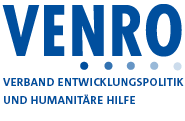In the course of the upcoming Summit of the Future in New York City, UN member states intent to reaffirm their enduring commitment to the 2030 Agenda and push forward its Sustainable Development Goals. We spoke with Henrique Frota, Executive Director of our Brazilian partner platform ABONG, about the most urgent topics ahead of the Summit.
What are your expectations of the Summit?
Considering that the Summit of the Future is intended to address emerging global challenges, boost the reform of multilateralism and push forward the 2030 Agenda, we expect more ambitious and concrete commitments from countries, since action has been insufficient so far and many agreements are not being fulfilled or are still too modest in the face of the global polycrisis. In this sense, some topics are of particular interest to us in organized civil society:
- Strengthening Civil Society Participation
We hope for greater inclusion of civil society in global negotiations and decision-making processes. This means ensuring that non-governmental organizations (NGOs), social movements, activists and other civil society actors have a real voice and influence in debates and policies affecting global issues such as climate change, inequality and human rights. So far, we have seen a strong influence from the private sector (which is one of those responsible for the crises) and this needs to be adjusted.
- Real Commitments to Climate Action
We expect the Summit to move forward with concrete commitments and clear deadlines to mitigate the effects of climate change, including a just transition and support for countries and social groups in situations of greater vulnerability. Civil society hopes that the Summit will produce tangible measures and not just declarations of intent.
- Reform of Global Governance
Civil society, often critical of the elitist and bureaucratic nature of the United Nations (UN) and other global institutions, hopes that the Summit will propose reforms that will make these institutions more democratic, transparent and inclusive, allowing for greater accountability.
- Facing Global Inequalities
Inequality, both within and between countries, is a growing concern. The meeting is expected to address issues such as the unequal distribution of vaccines, the economic impacts of the pandemic and unequal access to natural and technological resources. Civil society is pressing for solutions that promote equity, social and economic justice.
- Global Peace
Against a backdrop of multiple armed conflicts, forced migrations and political instability, civil society yearns for a more effective UN approach to human security and sustainable peace.
What activities are you undertaking as a network during the Summit?
ABONG and its member organizations are part of multiple international networks and have been working on the themes of the Summit for years. We will have some events with partners during the Action Days, as well as parallel events during Climate Week in New York.
Together with our partner networks VENRO (Germany), VANI (India) and CCRDA (Ethiopia), we will have networking meetings and an important hybrid event on food and nutrition security in the face of the climate crisis (registration link).
With FORUS, ABONG is co-sponsoring a side event on global governance and the 2030 Agenda.
How is your government responding to the Summit?
The Brazilian government will be present at the Summit, articulating the priorities already established by the G20 Presidency this year: 1) Fighting Hunger and Poverty; 2) Sustainable Development and Energy Transition; 3) Reforming Global Governance.
In addition, Brazil has advocated an additional voluntary Sustainable Development Goal (SDG) on racial equality. This agenda is going to be addressed by government representatives at events and also in the drafting of the declaration.
Unfortunately, the Brazilian government did not include civil society representatives in the country’s delegation to the Summit. This was a common practice in Brazil in order to ensure social participation in global arenas. However, there was no openness to the Summit of the Future by the Brazilian government, which is strange. Nevertheless, during the Action Days, we will have events with the participation of government representatives in debates with civil society.
Henrique Frota is Executive Director of our Brazilian partner platform ABONG (Associação Brasileira de ONGs), located in São Paulo.
| Interview |
Die Inhalte auf dem VENRO-Blog geben Meinungen und Einschätzungen unserer Autor_innen wieder. Sie können von abgestimmten VENRO-Positionen abweichen.
 Mitgliederbereich
Mitgliederbereich
